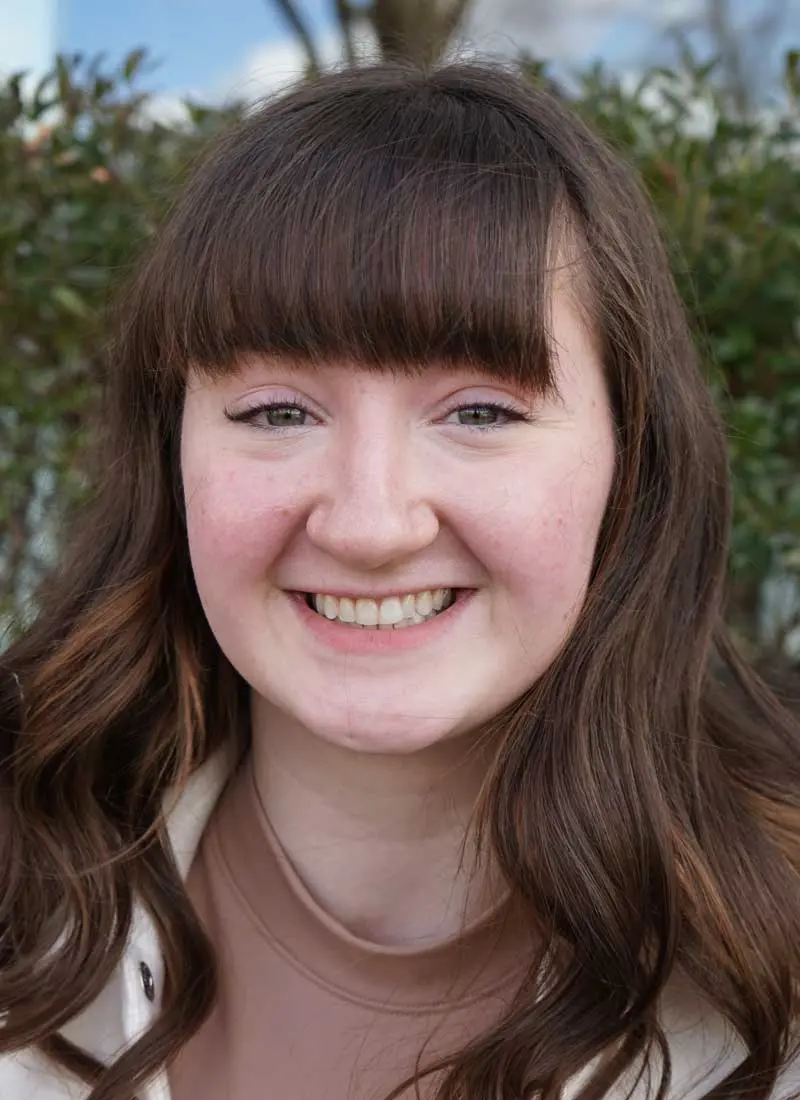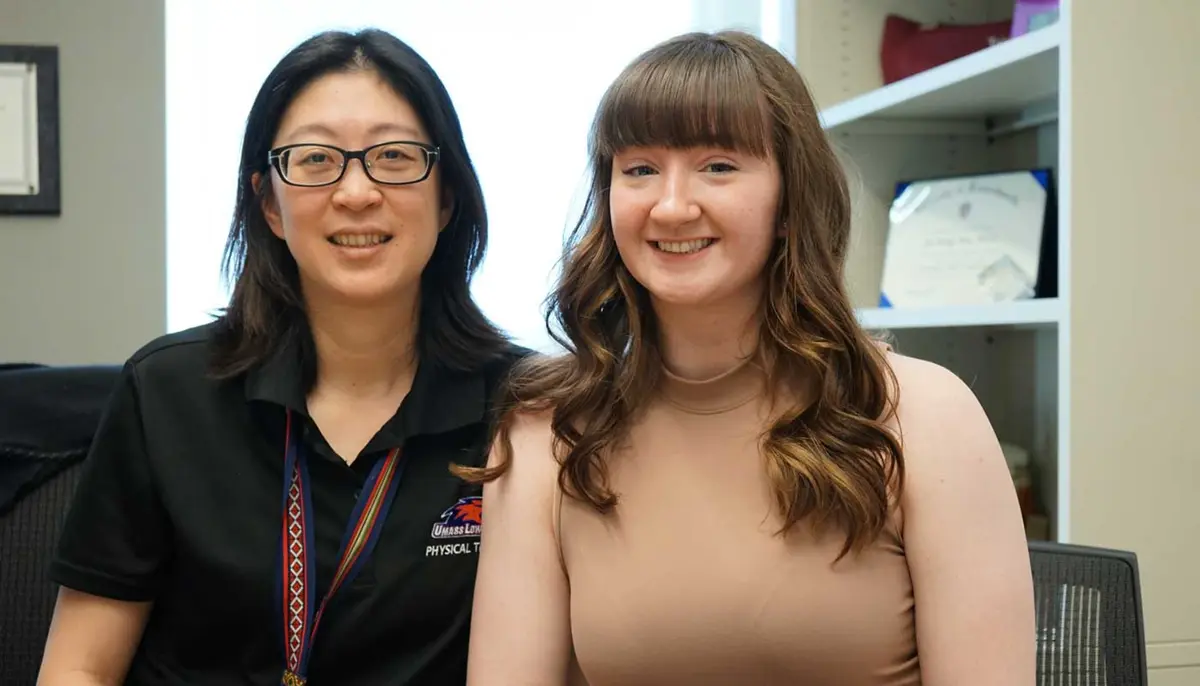Honors exercise science major Hannah Allgood decided that she wanted to be a physical therapist after suffering back problems as a gymnast in middle school.
She wanted to get involved in research, too. She’d read a lot of research articles as a high school student in Windham, New Hampshire, and she was curious to learn more.
Of all the schools where she applied, UMass Lowell seemed the most welcoming for undergraduates wanting to do research, she says. It also has a bachelor’s-to-doctorate program in physical therapy.
And it didn’t hurt that, in addition to admission to the Honors College, UML offered Allgood a $4,000 Immersive Scholarship to do research with a faculty member the summer after her first year of college.
“I chose UMass Lowell because of the undergraduate research opportunities,” she says. “Other schools didn’t have a structured pathway for research. And I just got the vibes that even if I didn’t have an Immersive Scholarship, there were plenty of opportunities to do research as an undergraduate.”
During Allgood’s first year at UML – when all her classes were taught online due to the COVID-19 pandemic – she applied to use her scholarship for research into human performance and physiological response with Physical Therapy and Kinesiology Assoc. Prof. Yi-Ning (Winnie) Wu.
Wu is an expert in technology-assisted rehabilitation and is the scientific lead for physiological measurement at UML’s New England Robotics Validation and Experimentation (NERVE) Center.
Allgood spent the summer of 2021 working in the NERVE Center at UML’s Innovation Hub at 110 Canal St. in downtown Lowell. She read research about human performance and learned how to use some of the equipment.
She also helped more advanced students in exercise science, biomedical engineering and physical therapy with their research projects. Those more advanced students, especially Andrew Stanwicks and Patrick Pang, mentored her and showed her around.
“That was really fun,” she says. “It was my first time doing anything on campus, so it was a nice introduction.”
Allgood, who will graduate in three years because she came to UML with nearly a year’s worth of college credits, continued doing research with Wu in her second year under a $1,500 Honors College Student Fellowship. She looked at how muscle fatigue affects motor control and the learning of new physical skills.
As a senior, she will come up with her own related project for her honors thesis. She hopes to continue working with Wu during her first year of graduate school in physical therapy, as well. She might even become a researcher and professor herself one day.
“I’ve started to see more of what the major could be, and I’ve started thinking about different routes other than traditional, one-on-one physical therapy,” she says.


